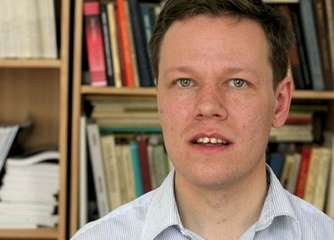The road to quantum computing

Anticipating the advent of the quantum computer, related mathematical methods already provide insight into conventional computer science.
Quantum computers will be much more powerful than those we have today. But they do not exist yet. So, what do quantum computer scientists study? They plan algorithms to be used if and when quantum computers will be built. Andris Ambainis, professor of computing at the University of Latvia, Latvia, tells youris.com about what quantum computing can do and his involvement in the EU-funded project QALGO, which started in 2013. This project may bring significant progress in quantum computing, but also physics, chemistry and computer science.
What is the goal of your research?
What we do is planning a language that will be useful as soon as quantum computers will be available. First of all, we try to answer the question: what can be computed with quantum computers, once we build them? Also, we have to foresee limitations of these new devices. For example, to identify computational problems that would be difficult to solve even for a quantum computer. Then we study applications of quantum computing in communication, to learn how to accomplish communication tasks more efficiently. Finally, we study its applications to other areas, such as non-quantum computer science or quantum physics.
How far are we from getting to real quantum computers?
I think we could get there in about fifteen to twenty years. There is a Canadian company, which already claims to be producing a quantum computer. But the scientific community is divided about whether it is an actual quantum computer or not. Even verifying this is not trivial at all. And we certainly cannot test our algorithms on that computer. Because it is the very first attempt, so it is only trained to accomplish one single task, which is different from those we are working on.
What would quantum computers allow?
We would be able to search through a large amount of data, regardless of their nature. Secondly, we could model physics effectively. For the time being, if we want to model quantum physical systems, conventional computers are quite poor. Quantum computers would be much better. And this , in turn, would have many applications, for example, in material science or in chemistry. Since researchers find new materials and chemicals by modelling them on computers.
Is research into quantum computing expensive?
Not particularly. For most of the time we only need some paper, a pencil and an ordinary computer. When it comes to building quantum computers, it is much more expensive. Although not as much as raising a Large Ion Collider as found in the particle physics laboratory CERN in Geneva, Switzerland or making space research.
Suppose we never manage to build a quantum computer. Would the research be useless?
No, it would not. Quantum computers combine quantum physics and computer science. So they provide a new way of thinking about new mathematical tools. If we do not build quantum computers, these tools could still be useful for other purposes. For example, one of the groups in our project used the mathematical ideas from quantum computing to solve a long standing open problem in conventional computer science.
What aspects of your work will be most interesting in the future?
I think application of ideas from computer science to quantum physics is a very interesting scenario, which is just getting started. But also the interaction between quantum computing and data security is very promising. A quantum computer may break some of the existing systems to code data. But then it could be used to make new coding schemes.
Provided by Youris.com










.jpg)







